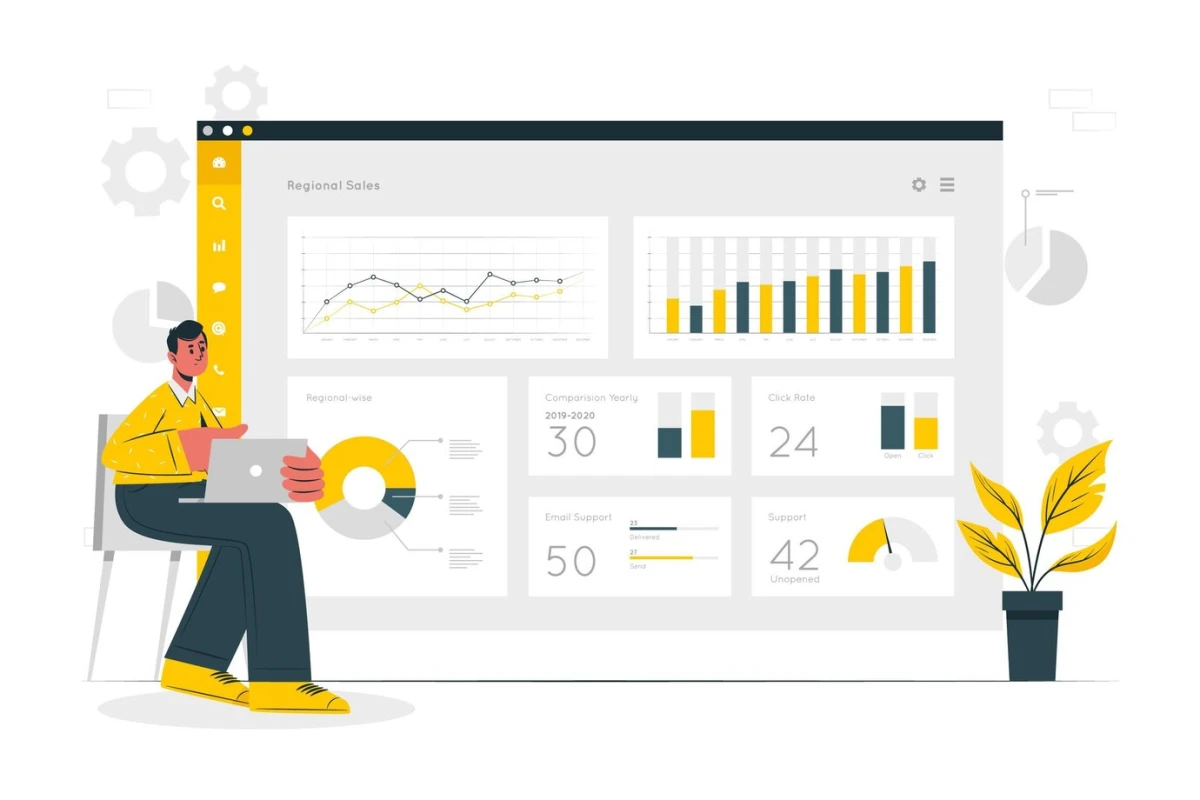
Data Analytics in Business
How to Go Beyond Intuition and Make Informed Decisions
Nowadays, just like in the fashion world, one must "stay in style" in business. Here, data analytics is the fashionable accessory that you simply can't do without. Let's find out how it works and why it's worth paying attention to, even for the most demanding business people.
Data analytics is a way to look at your business from a clearer perspective. Instead of acting blindly or relying solely on intuition, we now have tools that transform vast amounts of data into clear instructions. Now, businesses can act proactively, not just reactively.
Why Does a Business Need Data Analytics?
In an ideal world, customers would tell us exactly what they want and when. In reality, we have a variety of data—website clicks, behavior on social media, customer reviews. Data analytics helps put these "puzzle pieces" together into a coherent picture.
Simply put, data analytics is the invisible business consultant who whispers ideas just in time. For example, you can figure out why customers abandon their shopping carts on your website or which products are in higher demand than others.
Benefits of Data Analytics: Examples
Demand forecasting: Spotting patterns? For instance, ice cream demand increases specifically in July. This is the opportunity to stock up on more products and plan a marketing campaign in advance.
Seasonal trend analysis: Coffee shop chains can track which flavors are becoming more popular in winter or summer. Pumpkin spice latte? Time to add it to the menu!
Advertising budget optimization: With data analytics, a business can evaluate where advertising is most effective. For example, it may turn out that Instagram users are more likely to buy your product than Facebook users.
Customer behavior analysis: Imagine visitors to your online store leave the site right at the checkout. Data analytics can help pinpoint whether "floating" buttons or other subtle details are to blame.
Supply chain optimization: If you're a large manufacturer working globally with suppliers, data analytics can help lower costs, foresee potential risks, and find alternative supply routes.
Personalized offers for customers: In retail, data analytics enables personalized recommendations. Large online stores like Amazon, for example, analyze a customer's purchases and suggest similar products or items other customers bought along with the selected product. This increases the likelihood of a sale since customers receive more relevant offers.
Fraud detection: For financial institutions, data analytics is a powerful tool in the fight against fraud. Systems can track unusual behavior, such as large transfers from different countries, and warn of potential threats. This allows banks to respond quickly and protect customers' money.
Employee satisfaction analysis: Data analytics helps businesses better understand their employees. Large corporations, for instance, can track which factors affect productivity and job satisfaction. This could include working hours, work-life balance, opportunities for development, and so on. Based on this data, management can improve working conditions, reducing burnout and employee turnover.
Price optimization: Data analytics allows businesses to adjust prices in real time. Booking platforms for hotels or flights, for instance, use dynamic pricing based on demand, weekdays, or even weather. This helps maximize profits by adjusting prices to specific situations.
How IT Technologies Enhance Data Analytics
Today, technology works for us: artificial intelligence, machine learning, and deep data analysis tools allow businesses to quickly and accurately derive valuable insights. Platforms like Google Analytics or Power BI not only allow you to "view" data but also automatically generate reports and forecasts.
Why Is Data Analytics a Must Today?
In today's business environment, data is not just numbers—it's a valuable currency that can pave the way for success. By using data analytics effectively, businesses can not only react to changes but also predict future trends, better understand their customers, and optimize every aspect of their operation.
Data analytics is a powerful tool available to anyone ready to explore its secrets. It provides answers that were once only guessed at and helps businesses grow while staying one step ahead of the competition. If you're not using data analytics yet, it's time to take that step, because in today's business world, it's no longer a luxury—it's a necessity.

